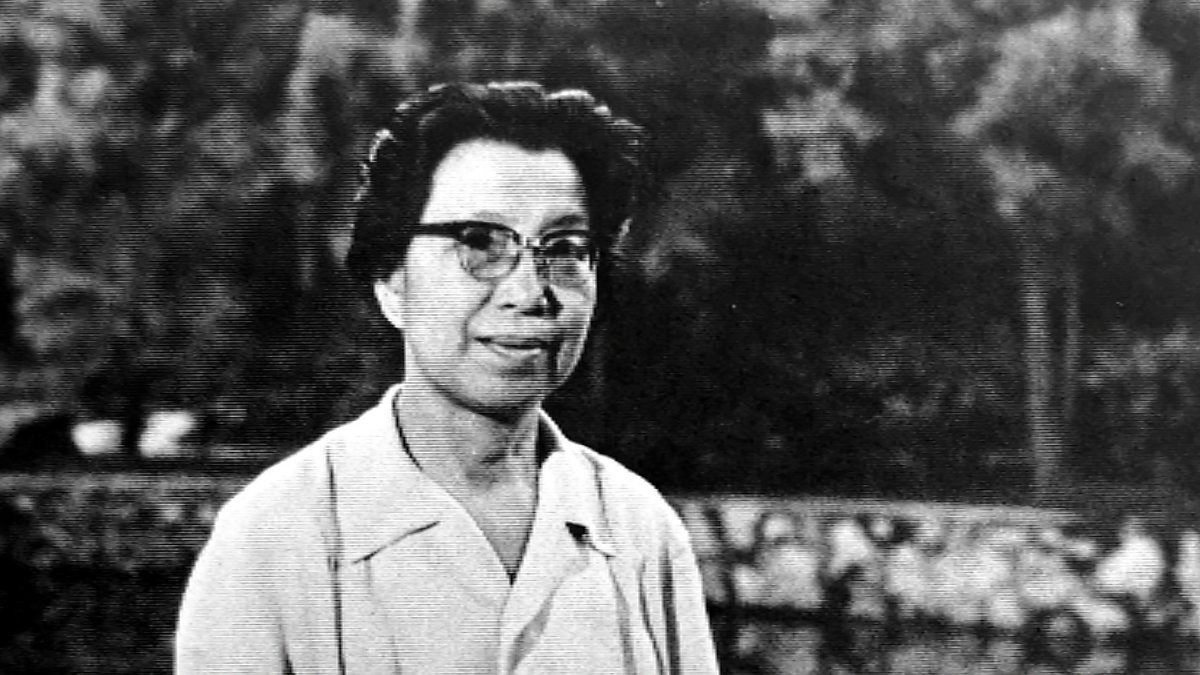
Who was Jiang Qing? Jiang Qing, also known as Madame Mao, was a significant figure in Chinese history. Born in 1914, she rose from humble beginnings to become the wife of Mao Zedong, the founding father of the People's Republic of China. Jiang Qing played a crucial role during the Cultural Revolution, a period marked by political upheaval and social chaos. She was a key member of the Gang of Four, a political faction that wielded immense power. Her influence extended to the arts, where she sought to reshape Chinese culture through revolutionary operas and films. Despite her contributions, Jiang Qing's legacy is controversial, with many viewing her as both a revolutionary and a tyrant.
Key Takeaways:
- Jiang Qing, a powerful figure in Chinese history, rose from humble beginnings to become a key player in the Cultural Revolution, leaving a controversial legacy that continues to spark debate and interest.
- Jiang Qing's life was marked by her rise to power, her role in the Cultural Revolution, and her eventual downfall and death, leaving a lasting impact on Chinese history and culture.
Early Life and Background
Jiang Qing, a significant figure in Chinese history, had a complex and controversial life. Here are some fascinating facts about her early years and background.
- Born on March 19, 1914, in Zhucheng, Shandong Province, China, Jiang Qing's birth name was Li Shumeng.
- Her father was a carpenter, and her mother worked as a domestic servant, indicating her humble beginnings.
- Jiang Qing's parents divorced when she was young, and she was raised by her mother.
- She attended primary school in her hometown but later moved to Jinan for secondary education.
- In 1931, she enrolled in the National Qingdao University to study literature and drama.
Rise to Prominence
Jiang Qing's journey to becoming one of the most powerful women in China was marked by her involvement in the arts and her marriage to Mao Zedong.
- She moved to Shanghai in 1933 to pursue a career in acting, adopting the stage name Lan Ping.
- Jiang Qing appeared in several films and stage productions, gaining moderate fame.
- In 1937, she joined the Chinese Communist Party (CCP) and became involved in revolutionary activities.
- Jiang Qing met Mao Zedong in 1938, and they married the following year, despite opposition from other CCP leaders.
- Her marriage to Mao Zedong significantly boosted her political influence within the CCP.
Role in the Cultural Revolution
Jiang Qing played a crucial role in the Cultural Revolution, a period of immense social and political upheaval in China.
- In 1966, she was appointed Deputy Director of the Central Cultural Revolution Group.
- Jiang Qing was a key figure in promoting the Cultural Revolution's goals, including the destruction of the "Four Olds" (old customs, culture, habits, and ideas).
- She used her position to target political rivals and consolidate power, often through public denunciations and purges.
- Jiang Qing was instrumental in the persecution of intellectuals, artists, and officials deemed counter-revolutionary.
- She promoted revolutionary operas and ballets, which became known as "model operas," to propagate communist ideology.
Downfall and Arrest
The end of the Cultural Revolution marked the beginning of Jiang Qing's downfall.
- After Mao Zedong's death in 1976, Jiang Qing's political influence rapidly declined.
- She was arrested in October 1976, along with other members of the "Gang of Four," a political faction blamed for the excesses of the Cultural Revolution.
- Jiang Qing was charged with various crimes, including counter-revolutionary activities and abuse of power.
- In 1981, she was sentenced to death, but her sentence was later commuted to life imprisonment.
- Jiang Qing spent the remainder of her life in prison, where she reportedly suffered from health issues.
Legacy and Controversy
Jiang Qing's legacy remains a topic of debate, with opinions divided on her role in Chinese history.
- Some view her as a ruthless power-seeker who caused immense suffering during the Cultural Revolution.
- Others argue that she was a scapegoat for the failures of the Cultural Revolution, which was a collective effort of the CCP leadership.
- Jiang Qing's promotion of revolutionary art has left a lasting impact on Chinese culture, with some of her model operas still performed today.
- Her life has been the subject of numerous books, documentaries, and films, reflecting ongoing interest in her story.
- Jiang Qing's complex relationship with Mao Zedong continues to intrigue historians and scholars.
Personal Life and Characteristics
Beyond her political activities, Jiang Qing's personal life and characteristics offer additional insights into her personality.
- Jiang Qing was known for her strong will and determination, traits that helped her navigate the male-dominated political landscape.
- She had a keen interest in literature and the arts, which influenced her political activities and policies.
- Jiang Qing was reportedly a demanding and exacting individual, both in her personal and professional life.
- Despite her controversial actions, she maintained a loyal following among some segments of the Chinese population.
- Jiang Qing's tumultuous life has been compared to that of other powerful women in history, such as Empress Dowager Cixi.
Final Years and Death
Jiang Qing's final years were marked by imprisonment and declining health, culminating in her death.
- She spent her imprisonment in relative isolation, with limited contact with the outside world.
- Jiang Qing's health deteriorated over the years, and she reportedly suffered from throat cancer.
- In 1991, she was transferred to a hospital for medical treatment.
- On May 14, 1991, Jiang Qing died by suicide, ending her controversial and tumultuous life.
- Her death was met with mixed reactions, reflecting the divided opinions on her legacy.
Influence on Modern China
Jiang Qing's influence on modern China can still be felt in various aspects of society and culture.
- The Cultural Revolution, which she played a significant role in, continues to shape Chinese politics and society.
- Jiang Qing's promotion of revolutionary art has left a lasting impact on Chinese cultural production.
- Her life and actions are often cited in discussions about the role of women in Chinese politics.
- Jiang Qing's story serves as a cautionary tale about the dangers of unchecked political power.
- Despite her controversial legacy, Jiang Qing remains a significant figure in Chinese history, with her life and actions continuing to be studied and debated.
Final Thoughts on Jiang Qing
Jiang Qing's life was a whirlwind of power, controversy, and drama. From her early days as an actress to becoming Mao Zedong's wife and a key figure in the Cultural Revolution, she left an indelible mark on Chinese history. Her influence on Chinese politics and culture was profound, yet her legacy remains deeply polarizing. Some view her as a revolutionary hero, while others see her as a symbol of tyranny. Understanding Jiang Qing's complex character helps us grasp the tumultuous period she lived in. Her story is a reminder of how individuals can shape, and be shaped by, the forces of history. Whether admired or reviled, Jiang Qing's impact on China cannot be ignored. Her life continues to be a subject of fascination and debate, reflecting the complexities of the era she helped define.
Frequently Asked Questions
Was this page helpful?
Our commitment to delivering trustworthy and engaging content is at the heart of what we do. Each fact on our site is contributed by real users like you, bringing a wealth of diverse insights and information. To ensure the highest standards of accuracy and reliability, our dedicated editors meticulously review each submission. This process guarantees that the facts we share are not only fascinating but also credible. Trust in our commitment to quality and authenticity as you explore and learn with us.


